Joining a prestigious group of only 2,000 scientists, artists, and scholars peer-selected as the best in their field, in November four Faculty of Science professors were added to the illustrious roster of Royal Society of Canada fellows this year at the induction ceremony in Winnipeg. The 2017 inductions bring the total number of our Faculty Fellows to an impressive 52 to date.
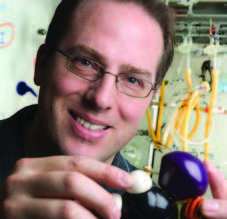
DENNIS HALL PROFESSOR, CHEMISTRY (MATHEMATICAL AND PHYSICAL SCIENCES DIVISION)
Dennis Hall is an organic chemist recognized as a world leader in the chemistry and chemical biology of the element boron. His research is centred on the study of the properties and the reactivity of organoboronic acids and their multiple applications in catalysis and drug discovery. His efforts led to the discovery of new and greener reaction processes and to new classes of organoboron compounds that are currently exploited as pharmaceutical agents.
"Election to RSC Fellowship is a special honour because it recognizes the importance of someone's scientific contributions in Canada. I have always been proud to represent the country on the global scene of research and scholarship. I am particularly grateful that my colleagues thought of me as worthy of this honour and took the time to nominate me."
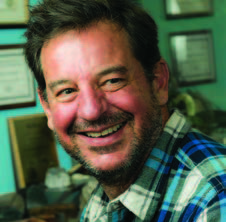
KURT KONHAUSER PROFESSOR, EARTH AND ATMOSPHERIC SCIENCES (EARTH, OCEAN, AND ATMOSPHERIC SCIENCES DIVISION)
Kurt Konhauser is a world expert in the field of geobiology. His research ranges from the role of microbes in metal binding and forming minerals to describing the biogeochemical processes controlling elemental cycling in oceans through time. His work is significant in understanding the evolution of oxygenation on the early Earth. He has published the authoritative textbook on the subject and is the founding editorin- chief of the journal Geobiology.
"Being elected to the Royal Society of Canada is a tremendous honour, one that could not have been achieved without the hard work and dedication of my graduate students, former and present."
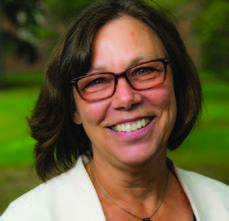
MARCIA SPETCH PROFESSOR, PSYCHOLOGY (SOCIAL SCIENCES DIVISION)
Marcia Spetch's innovative approaches to comparative cognition have contributed to opening up a significant new research field: comparative spatial cognition. Her studies on spatial memory and orientation across different species have invigorated comparative cognition worldwide. Spetch has also significantly advanced our understanding of decision making across different species and is internationally renowned for her research on how animals perceive, learn about, and remember their worlds.
"I am extremely honoured to be inducted into the Royal Society of Canada and to join the many great scholars in the society. I owe my success, in large part, to the wonderful students and colleagues I have been privileged to work with during my career and to the continual support of the University of Alberta."
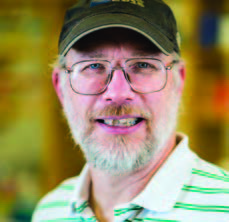
DAVID WISHART PROFESSOR, BIOLOGICAL SCIENCES AND COMPUTING SCIENCE (LIFE SCIENCES DIVISION)
David Wishart has made important research contributions to structural biology and metabolomics. In the 1990s, he discovered fast and efficient methods to help determine protein structures. In the mid-2000s, he directed the Human Metabolome Project, a multi-year project that helped give birth to the field of metabolomics. The resources he created are now accessed by millions of users each year.
"It's a real honour to be elected to the Royal Society, but it's an honour that I really share with my staff and students. Without them, I wouldn't have been able to do the things that led the Royal Society to elect me."
Inducted to the Royal Society of Canada's College of New Scholars, Artists, and Scientists:
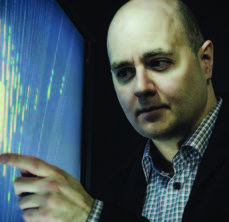
Darren Grant, Canada Research Chair in Astroparticle Physics, is an internationally recognized leader in the study of the subatomic particles known as neutrinos. He is designing the next generation of detector experiments at the South Pole and elsewhere. He is a major contributor to the study of how neutrinos change between varieties, the discovery of high-energy neutrinos from astrophysical sources, and the search for the nature of the elusive dark matter.
"It is an honour to be elected as a member of the College of the Royal Society of Canada. I feel truly humbled to be selected for this recognition by the members of the Royal Society, and I look forward to the opportunity to contribute to the important mission of the College."